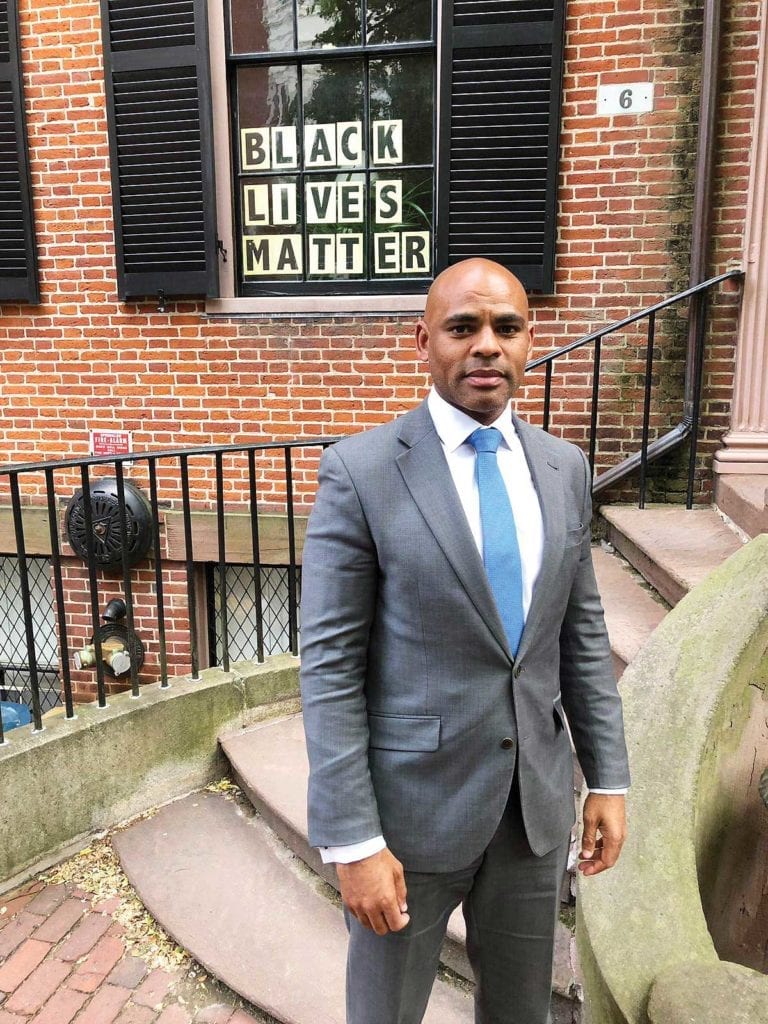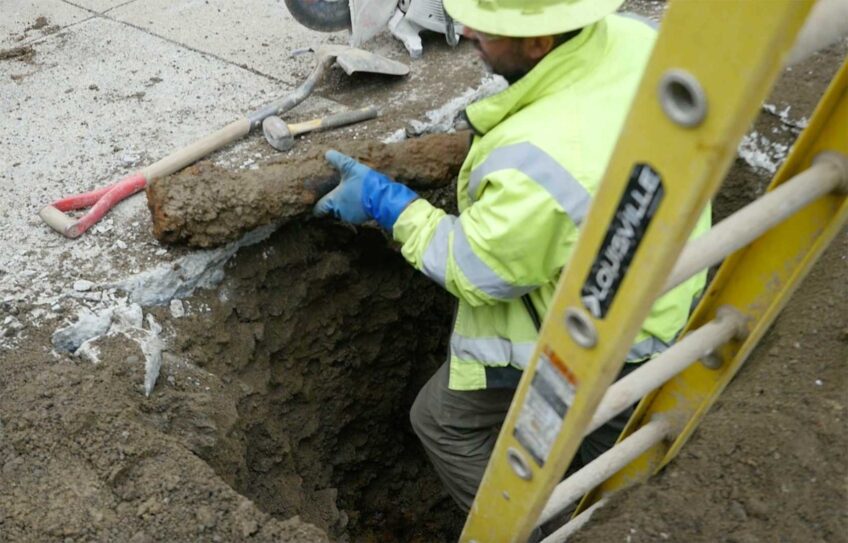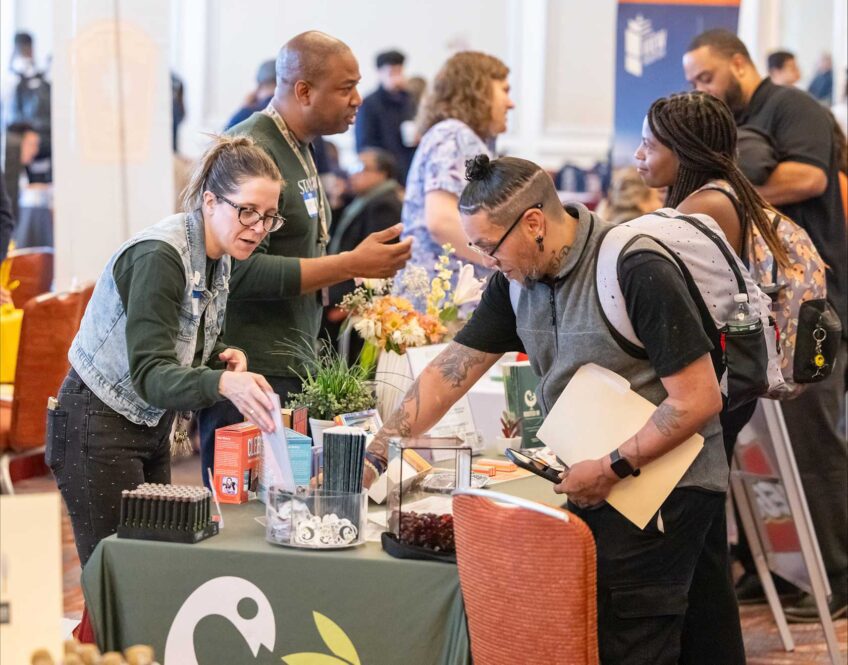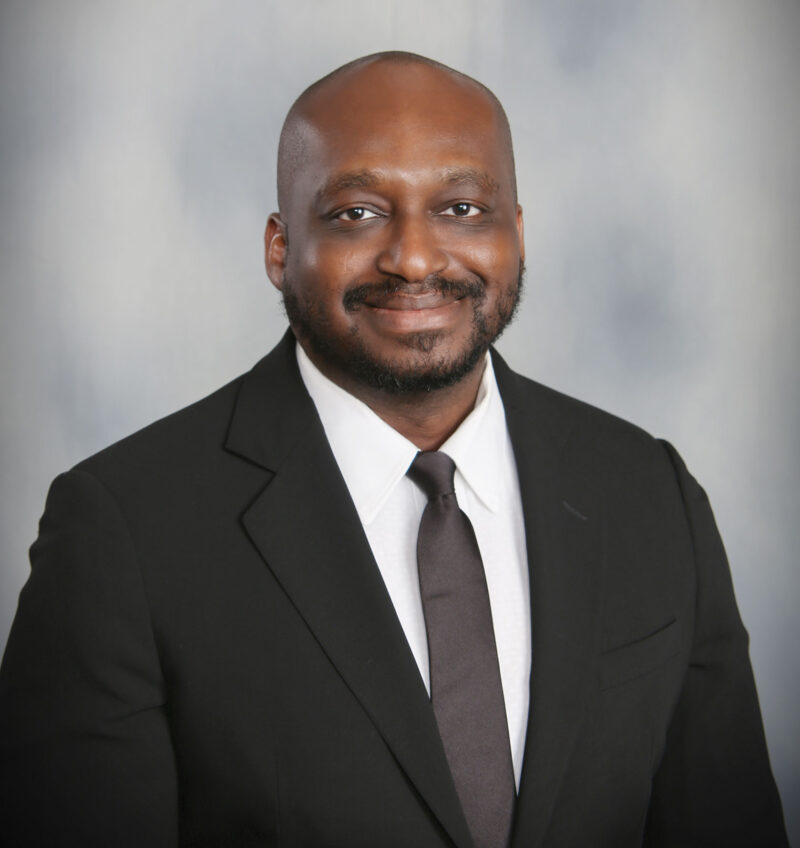
When Marvin Rees grew up in public housing in Bristol, U.K. during the 1970s and ’80s, he had an abiding sense that things weren’t fair.
“I always wanted to do something political, because of where I grew up,” he said, speaking to the Banner during a recent visit to Boston. “I always had aspiration. I always wanted to do something.”
When the city on the Atlantic coast of England moved from a town council model of governance to an elected mayor in 2012, Rees threw his hat in the ring. Although he lost the initial race, he won the seat in 2016, representing the Labor party.
Rees, a former radio presenter for BBC Radio Bristol and Ujima Radio, an Afro-Caribbean-oriented station in the city, stopped over in Boston last week en route to a Chicago meeting of local officials aimed at helping city leaders face challenges including climate change, migration and housing shortages.
The rising role of cities
While federal governments have long been seen as the primary movers of policy around the world, Rees is part of a growing movement that sees cities as the prime movers of policy changes that can impact these issues, often putting the local governments in opposition to federal governments.
“National governments talk in terms of borders and they try to stop people moving,” Rees said. “Cities only exist because stuff moves and crosses over. So, our challenge is not to stop things moving. If people and culture and finance stop moving, cities die. Our challenge is, how do we best position cities to take advantage of those movements?”
Like Boston, Bristol is a port city with universities, a thriving tech sector and growing challenges similar to those officials are struggling with here, according to Rees.
“There’s a history of inequality,” he said. “A history of racial and ethnic separation. And we’re also facing the forward challenge of rapid urbanization, housing crisis. We also face the challenge of being progressive cities working with problematic national governments.”
Rees’ mayoral administration has prioritized sustainable development, developing a 30-year plan for the growth of the city aimed at accommodating a growing population. Similar to Mayor Martin Walsh’s Boston 2030 plan, Rees’ One City Plan for Bristol sets goals in areas such as housing, jobs, education and environment in ten-year increments.
“It’s literally a timeline of everything we’re going to get done up to 2050, and all those timelines are matched against the sustainable development goals,” Rees said.
The United Nation’s Sustainable Development Goals (SDGs), which include among 17 objectives ending hunger, affordable and clean energy, and reduced inequalities, will help the city to better measure its progress, Rees said.
“We’ve pursued the sustainable development goals because we’ve wanted a framework that we can work with that tells us whether we are making progress on poverty, economic justice and environmental sustainability as well,” he said. “Rather than a thousand cities working to a thousand criteria, it gives us a common international language.”
Rees says reception to the plan has been positive so far.
“This has really grabbed some attention, especially from national government, who were struggling to know how they could deliver on the SDGs,” he said. “And we’re saying, ‘National governments don’t deliver on SDGs. Places deliver SDGs.’ The government doesn’t pull a lever in Westminster and get an outcome in Bristol. It’s not that simple. It’s up to the city to work together to deliver what it wants to deliver.”
Fighting poverty
Having grown up working class in an increasingly income-stratified city, Rees says tackling poverty is an important goal for him. While his city has two universities and a thriving tech sector, there are pockets of poverty.
“We’re one of the wealthiest cities in the UK and a pre-eminent city in Europe,” he said. “But we have six areas in the top 1 percent most deprived in England. I grew up in one of those areas. I’m the mixed-race son of an unmarried, single poor white woman. We grew up on benefits. I grew up watching all the opulence of the city.”
Rees sees an opening in the local tech firms’ need to fill jobs. Without a well-educated workforce, the firms in Bristol won’t thrive, he notes.
“We’re in global war for talent,” Rees said. “Our tech companies that are with me on this trade trip know that one of problems they have now is recruiting talent. They grow and grow, and then they have to start looking outside the city. We have some kids who are flourishing, and there are a lot who are not.”
A spirit of collaboration
While Bristol may be in competition with other cities for skilled workers, Rees stresses the importance of collaborating with other cities on the challenges all cities face. He cites the C40 Cities organization, a global coalition of 94 cities working collaboratively to comply at the local level with the goals of the Paris Agreement on limiting greenhouse emissions. While the U.S. government under President Donald Trump has backed away from the agreement, U.S. cities including Boston, New York, Washington, D.C. and Los Angeles are members of the C40 Cities.
“There are various networks, as well — the U.S. Conference of Mayors and Euro Cities — that are about city leaders coming together to work collaboratively,” Rees added.
Among the innovative approaches Rees has learned from collaboration with other mayors is pre-fabricated housing, which developers in Bristol are planning to use to meet the city’s ambitious goal of creating 60,000 new homes, with 24,000 of these deemed affordable.
“These houses go up in 24 hours, but they’re top-quality. Beautifully designed,” he said.
Last year, Bristol hosted a housing festival during which manufacturers displayed their homes. Rees said he would like to host a similar festival in the U.S.
“We can share our lessons,” he said. “We would love it to be in Boston.”
Rees, whose father is Jamaican, is the first directly elected mayor of African heritage in Europe. He says he relishes the challenges of being mayor of a growing city.
“It’s a joy,” he said. “It’s an amazing job. It’s a bit like boxing — I used to box a lot. Being punched in the face isn’t enjoyable, but you love boxing. And that’s what it’s like. There are aspects of it that are not fun, but the overarching experience and opportunity here is to try to do things that matter.”

![Banner [Virtual] Art Gallery](https://baystatebanner.com/wp-content/uploads/2024/05/PFW_3-150x150.jpg)




